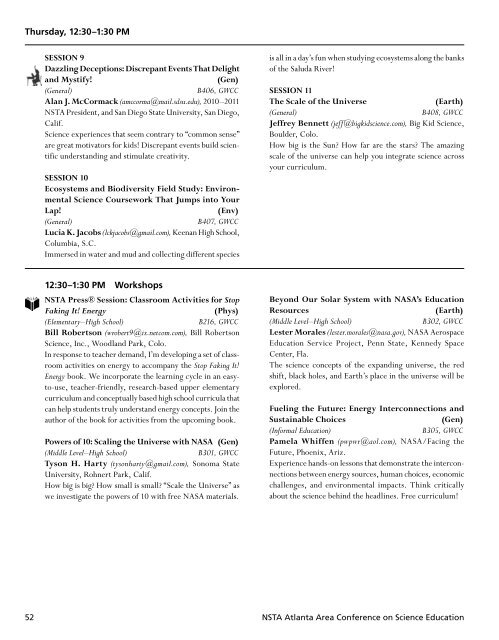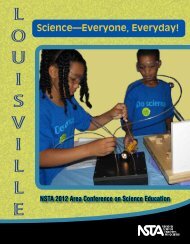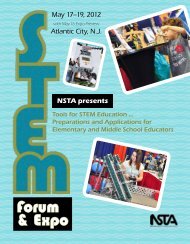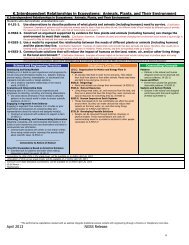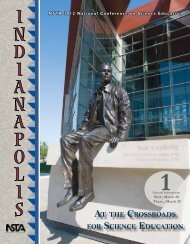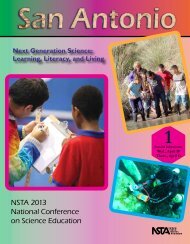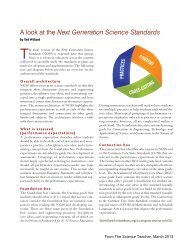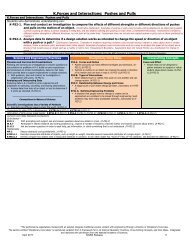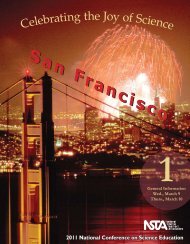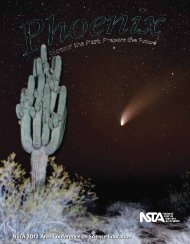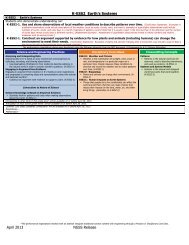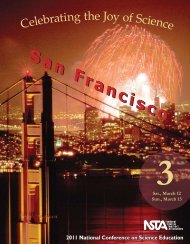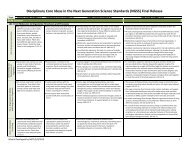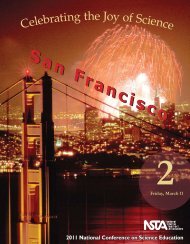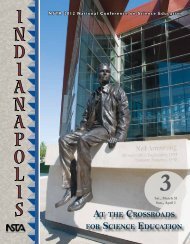Atlanta Conference Program
Atlanta Conference Program
Atlanta Conference Program
You also want an ePaper? Increase the reach of your titles
YUMPU automatically turns print PDFs into web optimized ePapers that Google loves.
Thursday, 12:30–1:30 PM<br />
SESSION 9<br />
Dazzling Deceptions: Discrepant Events That Delight<br />
and Mystify!<br />
(Gen)<br />
(General)<br />
B406, GWCC<br />
Alan J. McCormack (amccorma@mail.sdsu.edu), 2010–2011<br />
NSTA President, and San Diego State University, San Diego,<br />
Calif.<br />
Science experiences that seem contrary to “common sense”<br />
are great motivators for kids! Discrepant events build scientific<br />
understanding and stimulate creativity.<br />
SESSION 10<br />
Ecosystems and Biodiversity Field Study: Environmental<br />
Science Coursework That Jumps into Your<br />
Lap!<br />
(Env)<br />
(General)<br />
B407, GWCC<br />
Lucia K. Jacobs (lckjacobs@gmail.com), Keenan High School,<br />
Columbia, S.C.<br />
Immersed in water and mud and collecting different species<br />
is all in a day’s fun when studying ecosystems along the banks<br />
of the Saluda River!<br />
SESSION 11<br />
The Scale of the Universe<br />
(Earth)<br />
(General)<br />
B408, GWCC<br />
Jeffrey Bennett (jeff@bigkidscience.com), Big Kid Science,<br />
Boulder, Colo.<br />
How big is the Sun How far are the stars The amazing<br />
scale of the universe can help you integrate science across<br />
your curriculum.<br />
12:30–1:30 PM Workshops<br />
NSTA Press® Session: Classroom Activities for Stop<br />
Faking It! Energy<br />
(Phys)<br />
(Elementary–High School)<br />
B216, GWCC<br />
Bill Robertson (wrobert9@ix.netcom.com), Bill Robertson<br />
Science, Inc., Woodland Park, Colo.<br />
In response to teacher demand, I’m developing a set of classroom<br />
activities on energy to accompany the Stop Faking It!<br />
Energy book. We incorporate the learning cycle in an easyto-use,<br />
teacher-friendly, research-based upper elementary<br />
curriculum and conceptually based high school curricula that<br />
can help students truly understand energy concepts. Join the<br />
author of the book for activities from the upcoming book.<br />
Powers of 10: Scaling the Universe with NASA (Gen)<br />
(Middle Level–High School)<br />
B301, GWCC<br />
Tyson H. Harty (tysonharty@gmail.com), Sonoma State<br />
University, Rohnert Park, Calif.<br />
How big is big How small is small “Scale the Universe” as<br />
we investigate the powers of 10 with free NASA materials.<br />
Beyond Our Solar System with NASA’s Education<br />
Resources<br />
(Earth)<br />
(Middle Level–High School)<br />
B302, GWCC<br />
Lester Morales (lester.morales@nasa.gov), NASA Aerospace<br />
Education Service Project, Penn State, Kennedy Space<br />
Center, Fla.<br />
The science concepts of the expanding universe, the red<br />
shift, black holes, and Earth’s place in the universe will be<br />
explored.<br />
Fueling the Future: Energy Interconnections and<br />
Sustainable Choices<br />
(Gen)<br />
(Informal Education)<br />
B305, GWCC<br />
Pamela Whiffen (pwpwr@aol.com), NASA/Facing the<br />
Future, Phoenix, Ariz.<br />
Experience hands-on lessons that demonstrate the interconnections<br />
between energy sources, human choices, economic<br />
challenges, and environmental impacts. Think critically<br />
about the science behind the headlines. Free curriculum!<br />
52 NSTA <strong>Atlanta</strong> Area <strong>Conference</strong> on Science Education


